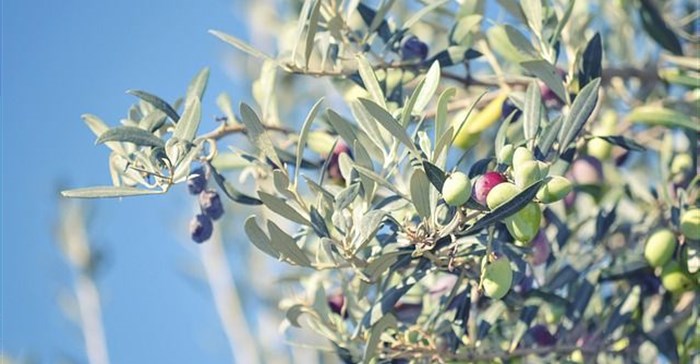In South Africa, consumers are blessed with a choice of high quality, locally produced olive oils. Southern Europe and the Middle East are synonymous with olive oil production, owning the lion’s share of the global market.

The industry experienced a rocky 2017 with production shortages that resulted in higher prices, driven by widespread drought affecting farmers. One of the most ruthless weather systems has also impacted our farmers heavily the past few seasons: the El Niño system caused patterns which produced the driest year in South Africa’s history.
In the last two decades, South Africa has lost close to 30% of its farmlands due to water scarcity. The Western Cape has recently seen the worst drought to hit the region in the last century. Farmers, who are mainly focused on fruit production in the Cape, feel increased pressure to conserve water as rainfall becomes less predictable and other industries demand a greater share of piped water.
Against this backdrop, South Africa has still managed to produce world-class olive oil, which has been recognised on the international stage. Over the past five years, there has been a 50% increase in planting and financing of olive farms, with approximately 95% of olive farmers situated in the Western Cape.
Local production of olive oil only satisfies a third of consumption in South Africa, with the rest needing to be imported. This allows for more players to enter the market and for current players to focus on making quality oils that are among the best on the world stage.
The United States, where South African producers focus the majority of their attention, is the biggest importer of olive oils. Premium producers focus their markets and product on this platform. Germany, Netherlands, Belgium and the Nordics are South African farmers’ next target, followed by the Middle East, China and Japan. In this growing industry, there is also much room for development to harness the potential of young entrepreneurs and farmers. Farmers of olives could play a critical role as creators of jobs and drivers of economic growth within the South African agricultural sector.
If agriculture is to improve its contribution to economic development and the achievement of sustainable and secure food supply systems in South Africa, key stakeholders have to be more coordinated in their partnerships. Ultimately, new approaches and partnerships among the many but disconnected stakeholders must be encouraged in order to strengthen our farmers’ leveraging power through better quality products and competitive international prices.
Absa is a proud supporter of the olive industry in South Africa and, in conjunction with the SA Olive Oil Association, sponsors the Absa 10 Top Olive Oils Awards. This year’s finalists were announced on Wednesday, 27 September.

AgriOrbit is a product of Centurion-based agricultural magazine publisher Plaas Media. Plaas Media is an independent agricultural media house. It is the only South African agricultural media house to offer a true 360-degree media offering to role-players in agriculture. Its entire portfolio is based on sound content of a scientific and semi-scientific nature.
Go to: http://agriorbit.com/